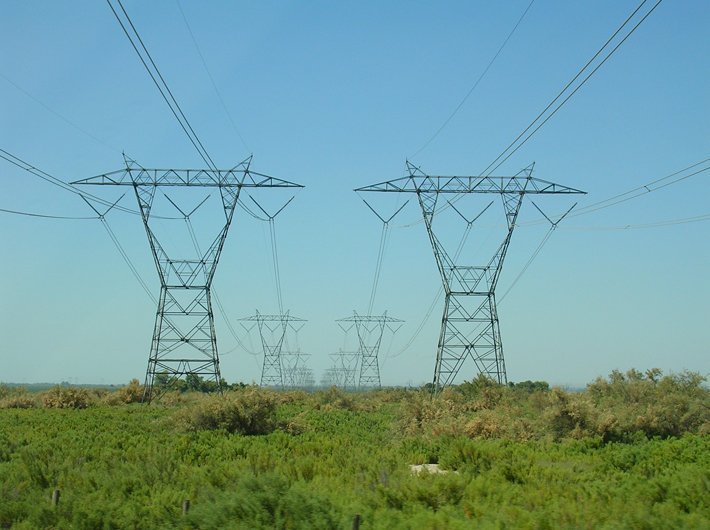It called green economy as “sunrise economy” with potential to generate jobs and enhance incomes. Transition seems like a long road ahead, there’s a start in right direction
At the COP26 Climate Change Summit, held in November 2021, India pledged to become a net-zero carbon emission country by 2070. Hence, the expectations from the union budget to nudge India towards a green, sustainable economy were already running high. The budget did mention a host of important announcements in several sectors of the economy to make that energy transition and incorporated the importance of green economy for the upcoming infrastructure development plan. Here, we elucidate on some of the critical budgetary outlays and assess if the statements reflect on the intentions of making India a net-zero carbon emission economy.
To tap the interest of the potential investors and startups in the growing energy space, the budget declared the issuance of sovereign green bonds that will mobilize resources for the green infrastructure. The proceed from the bonds will be deployed for public sector projects that are expected to reduce the carbon footprint of the economy, which is unlike the standard bonds that can be used for any purpose, often left at the discretion of the issuer. This development was welcomed by the industry and the investors alike. However, further details on the public sector projects or the companies that would be utilising the funds from these bonds still remain to be clarified.
In line with the commitment to ensure that India sustains a low carbon growth, the budget proposed certain short- and long-term actions for solar power manufacturing. The finance minister announced an additional outlay of Rs 19,500 crore for a production linked incentive or PLI scheme for manufacturing of high efficiency solar photovoltaic modules. The Indian solar industry is majorly dependent on imports with close to 75% of solar equipment being imported from China. To counter that, a basic customs duty of 25% on imported solar cells and 40% on solar module, which is the finished product, would be enforced from April 1, 2022. While this has cheered local producers, it is likely to lead to higher production costs and translate to higher electricity tariffs for the consumers. As India prepares forachieving the target of generating 500 gigawatts of renewable energy by 2030, investment in energy storage and power transmission will gain utmost importance.
The future of the electric vehicles (EV) industry looks promising. One of the policies to promote it was introducing battery swapping incentives. The future adopters of EVs might be concerned about the duration their vehicles will run, the outlets for charging, etc. Given the dense cities, it might be difficult to build more stations, and hence the budget mentioned battery swapping policies, which incentivises the driver to rent the battery instead of owning it, cutting down on charging times, and congestion at the charging stations. This policy will encourage faster adoption of EVs among the citizens and for the businesses to enter the batter-swapping industry. In the future, an Uber-like app for battery swapping services might be developed, which might help, the consumers, producers and start-ups alike.
Another transition to green economy was announced through a circular economy model, which not only harnesses the power of recycling and reuse but is also expected to generate opportunities for new businesses and jobs. [On this, also read: Harnessing the Power of Circular Economy through Budget 2022-23] The budget laid out this transition for ten sectors such as “electronic waste, end-of-life vehicles, used oil waste, and toxic & hazardous industrial waste.”, among others. The budget committed support of public policy regulations for achieving this transition. However, funding to specific sectors to achieve the circular economy transition was not mentioned and needs further clarification.
Finally, the budget reflected the government’s resolve to encourage the blending of fuel and announced a higher tax of Rs 2/litre for unblended fuel from October 1, 2022. The government had introduced a PLI scheme wherein fuel companies will be required to sell gasoline containing up to 20% of ethanol by 2023. Nearly 60% of the additional ethanol requirement for blending will come through the diversion of excess sugar production. This will lead to unintended consequences like the diversion of land from staple crops to water-guzzling crops like sugarcane, burdening the already scarce water and land resources. While the intention of taxing the unblended fuel might be rightly placed, the unintended consequences in the future should be internalised as well.
The finance minister said that climate change risks are “the strongest negative externalities that affect India and other countries”, and in the same breath, the budget emphasised the importance of sustainability. The above-mentioned policies are an important signal to the manufacturers as well as investors that India is indeedtransitioning to a green economy. To achieve this, there needs to be significant upgradation of manpower and R&D. Higher education and course load will need to be aligned with the demands of the industry. Several sectors that are significant to the green economy and missed getting budgetary grants like energy storage, phasing down of fossil fuels, closure of inefficient fossil fuel plants, among other things, will need to be allocated funding adequately. In the budget 2022, the green economy was referred to as the “sunrise economy” that has the potential to generate employment and enhance incomes, and while the transition seems like a long road ahead, it was a start in the right direction.
Payal Seth is a PhD Scholar, and Palakh Jain is an associate professor, at Bennett University.
